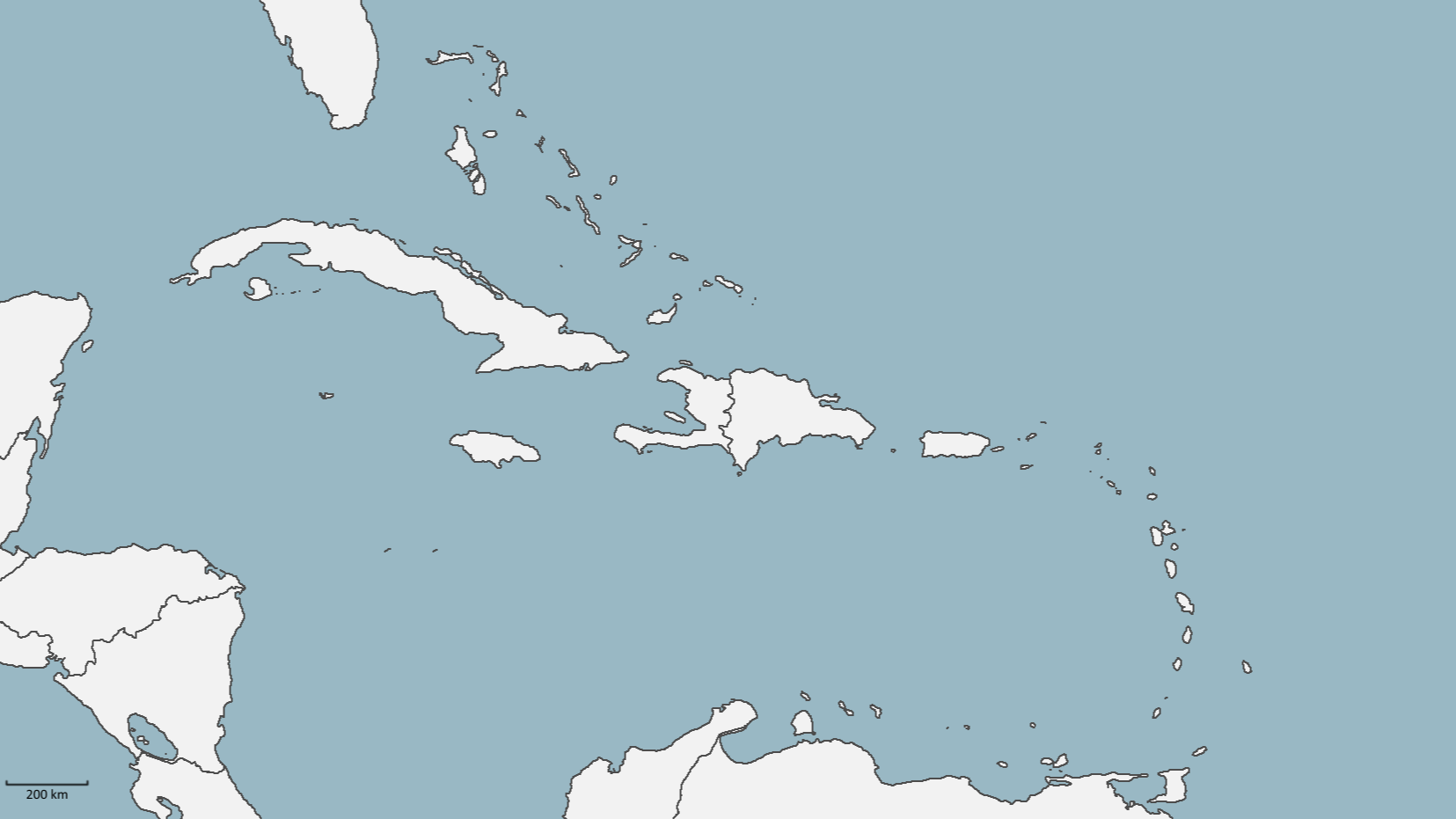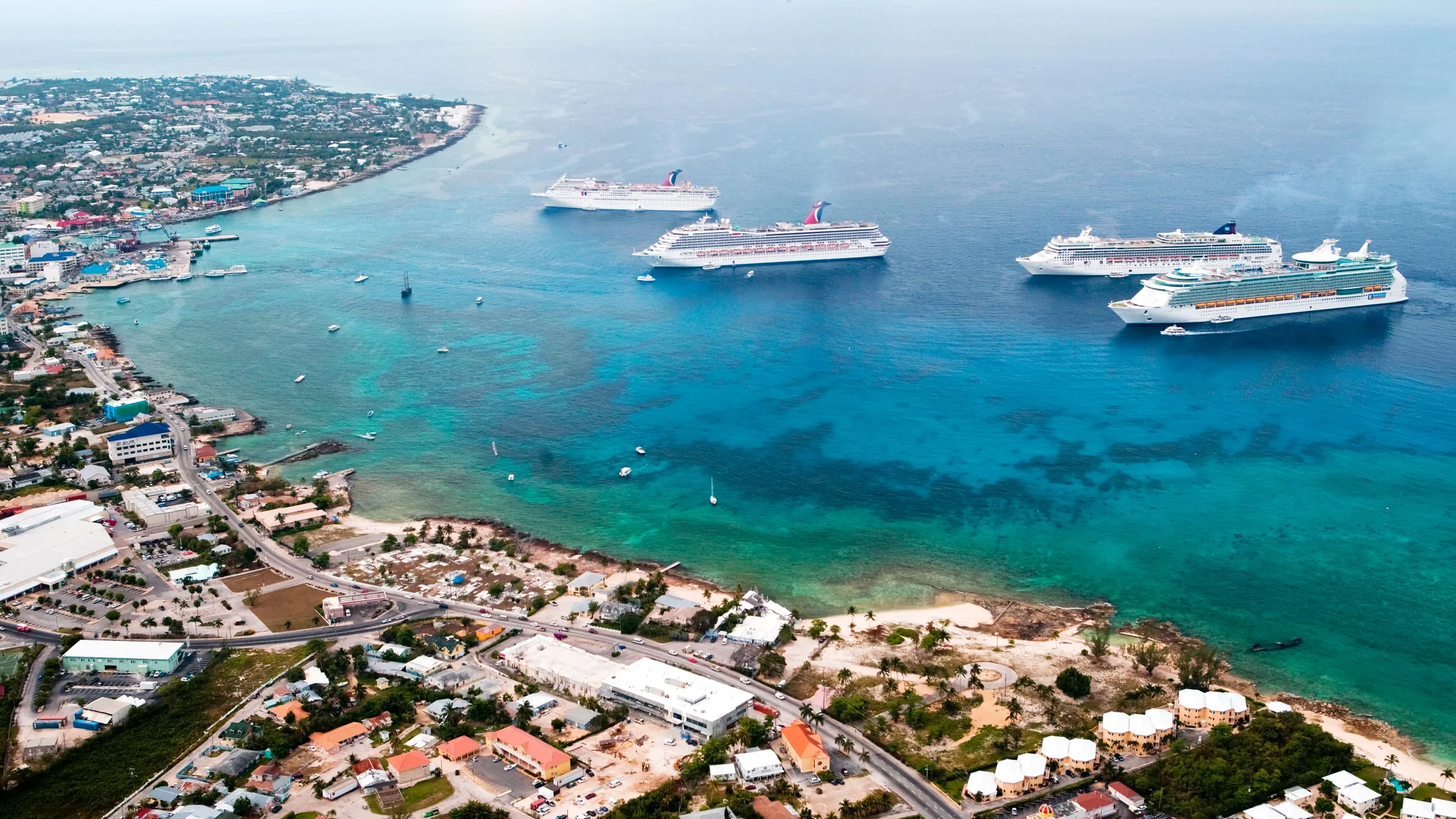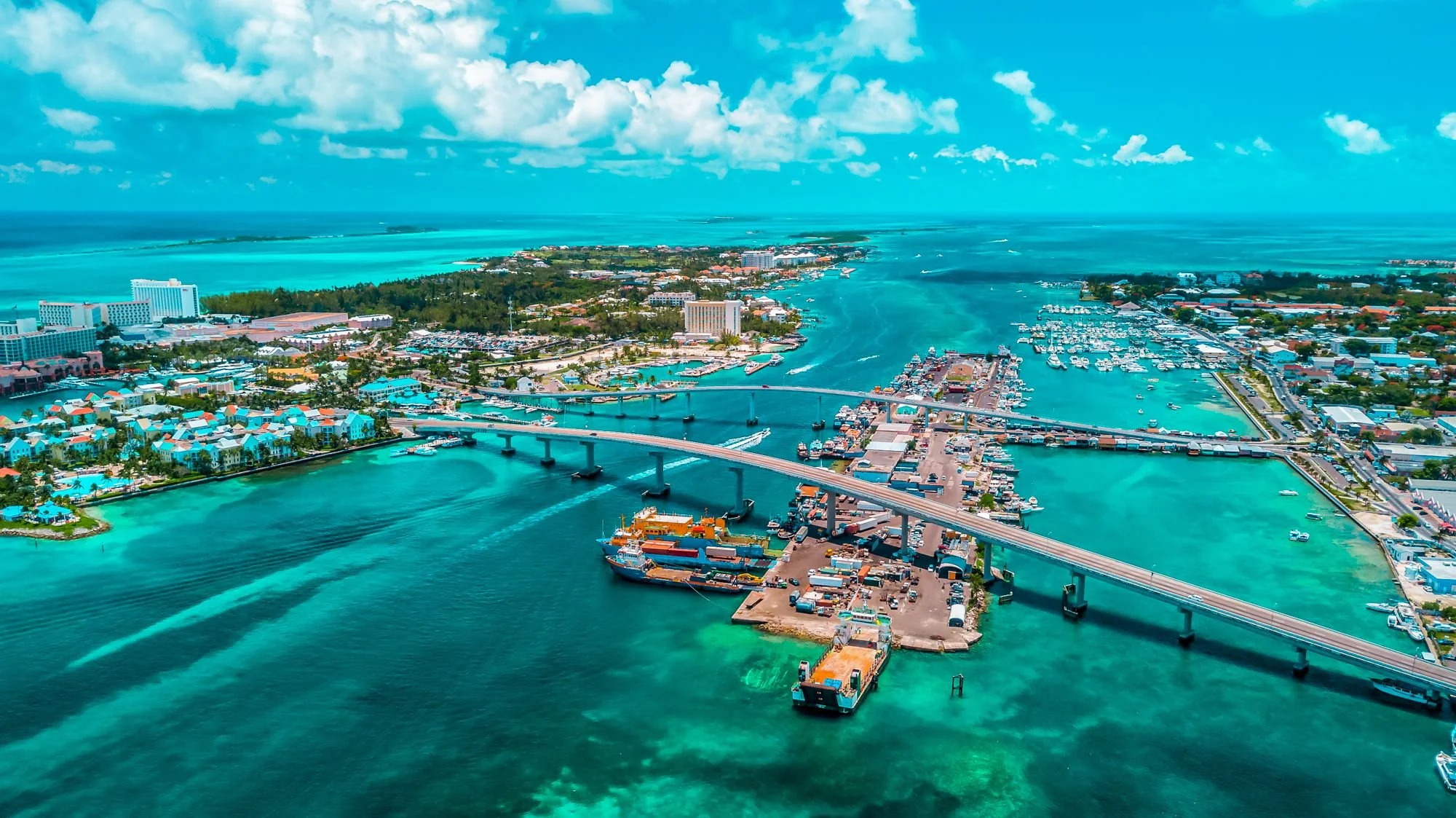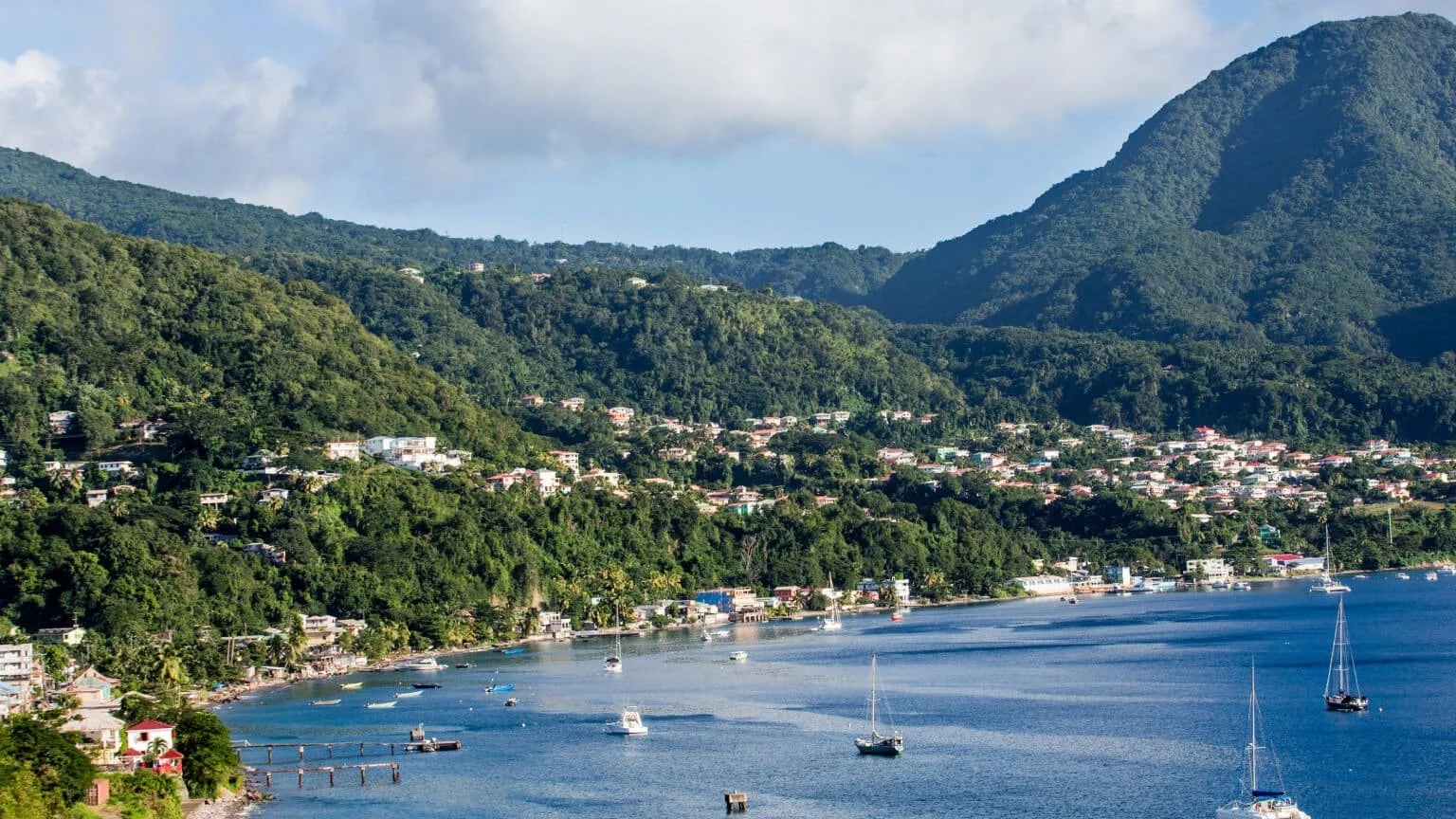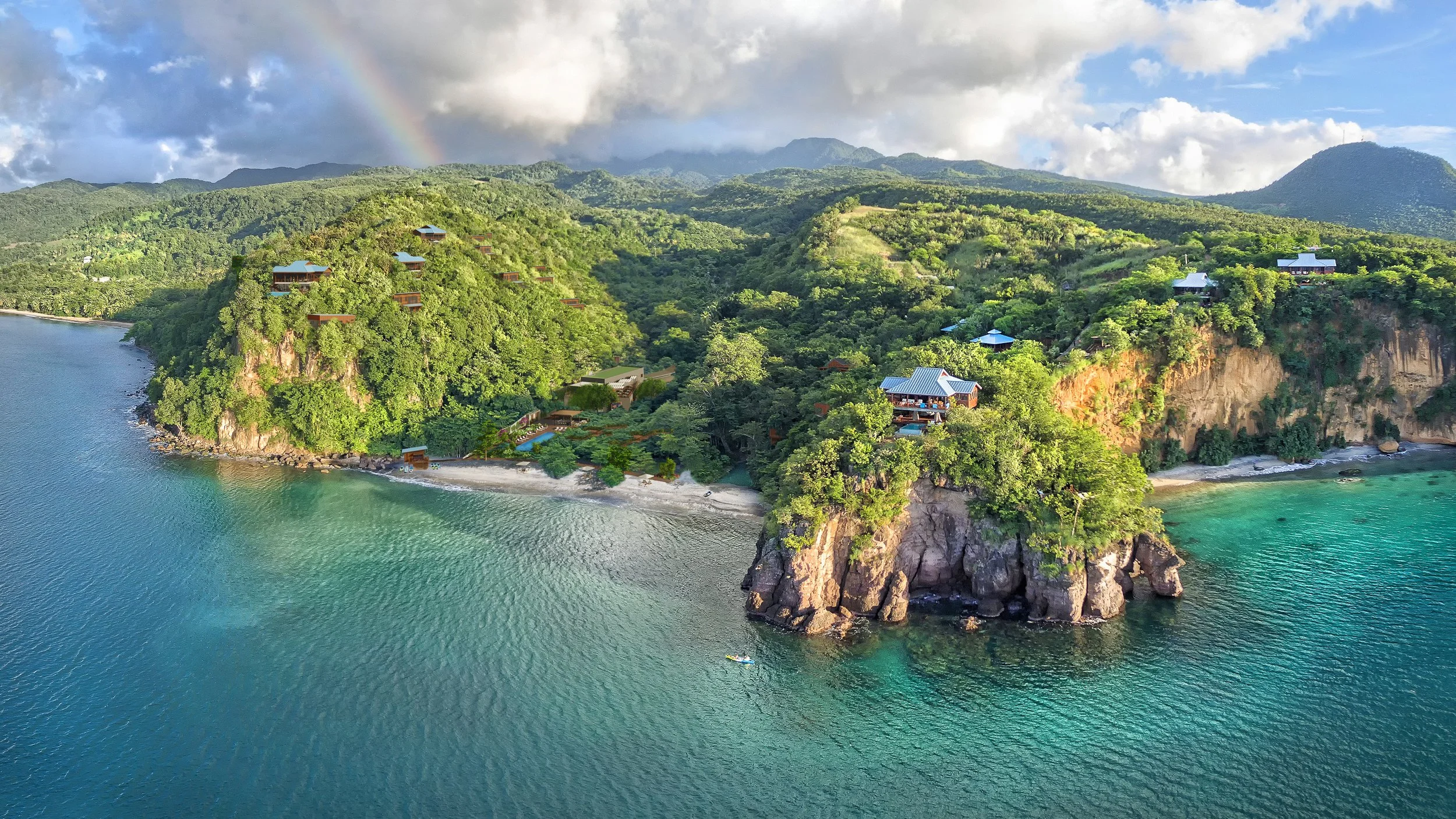The $1M Caribbean Plan B: From Citizenship to Island Escape in 24 Months
Why Wealthy Families Are Building a Plan B
In 2025, the question I hear most often isn’t “Should I build a Plan B?” It’s “Where should I build it?”
Across the world, families are rethinking how and where they want to live. Rising taxes in Europe, regulatory tightening in the UK, growing capital gains exposure in Canada, and geopolitical uncertainty in North America have pushed many high-net-worth individuals to seek alternatives. Even Americans—who remain subject to U.S. federal tax no matter where they reside—are actively looking for second homes, offshore residency options, and international diversification.
The Caribbean has emerged as one of the most attractive destinations for this new wave of global planning. It offers something rare: a combination of citizenship and residency pathways, tax-efficient environments, real estate investment opportunities, and lifestyle advantages. For some families, it’s a backup plan—a hedge against instability. For others, it’s a full relocation, with schools, healthcare, and year-round living built into the equation.
With a budget of around $1M USD and a structured 24-month roadmap, you can create a Caribbean base that delivers more than just sunshine. You can secure a respected second citizenship, establish tax residency, and own a villa or branded residence that serves as both a lifestyle retreat and a long-term wealth anchor.
Step 1: Choosing the Right Jurisdiction
Map of the Caribbean Region
When it comes to building a $1M Plan B in the Caribbean, the very first decision is choosing the jurisdiction that best fits your goals. Not all islands are created equal. Each has its own culture, cost of living, tax structure, and approach to investment migration. Some are better suited for families relocating full-time, others for UHNWIs looking for privacy, and still others for entrepreneurs who want strategic access to the U.S. or Latin America.
The right choice depends on your priorities:
Flight access to North America and Europe
Tax neutrality or low-tax structuring opportunities
Quality of education and healthcare for families relocating with children
Residency or citizenship options that fit your budget and lifestyle goals
Lifestyle and culture—from private and understated to vibrant and cosmopolitan
Here’s a closer look at some of the most relevant jurisdictions:
Cayman Islands
Georgetown, Cayman Islands
The Cayman Islands represent the gold standard of offshore hubs. Globally recognized as a leading financial center, Cayman offers no income tax, no capital gains tax, and an exceptionally stable legal and political environment. For UHNW families, Cayman is attractive because it combines first-world infrastructure—private healthcare, international schools, world-class dining—with the ability to live in a tax-neutral jurisdiction.
The tradeoff is cost. Real estate prices are among the highest in the Caribbean, and the entry point for residency is steep. But for those who can afford it, Cayman offers prestige, compliance, and security unmatched anywhere else in the region.
British Virgin Islands (BVI)
British Virgin Islands, West Indies
The British Virgin Islands are best known for their sailing waters and discreet lifestyle. Unlike St. Kitts or Antigua, BVI does not have a formal Citizenship by Investment (CBI) program, which limits direct residency pathways. However, it remains a niche choice for exclusive real estate ownership, yacht-based lifestyles, and offshore structuring.
BVI appeals to those who already maintain other passports or residencies but want a quiet Caribbean escape with a strong financial services backbone.
St. Kitts & Nevis
St. Kitts & Nevis pioneered the citizenship by investment industry in 1984, making it the oldest and one of the most respected programs worldwide. The islands are tax-neutral, politically stable, and offer strong global recognition for their passports.
Nevis in particular has become a favorite among HNWIs for its privacy, boutique scale, and luxury communities. Four Seasons Resort Estates Nevis anchors the market, alongside other CBI-approved real estate projects. For families seeking both a Plan B passport and a long-term villa asset, St. Kitts & Nevis consistently ranks among the top choices.
The Bahamas
Paradise Islands, Nassau, Bahamas
For American families, The Bahamas is the most convenient option. Just one hour from Miami, it offers daily flights to major U.S. and Canadian cities and some of the most developed infrastructure in the region. Residency is available through real estate investment, though entry costs and ongoing living expenses are high.
The Bahamas are ideal for those who want quick access to the U.S. while enjoying a Caribbean base. For UHNW families, Nassau, Lyford Cay, and private islands remain among the most sought-after Plan B destinations.
Antigua & Barbuda
St. Johns, Antigua, Antigua and Barbuda
Antigua offers one of the most affordable and flexible CBI programs in the Caribbean, making it especially appealing to families. Its international schools, modern airport with direct flights to North America and Europe, and relaxed lifestyle create a balance of practicality and comfort.
In recent years, Antigua’s property market has been boosted by branded developments like Nikki Beach Antigua, which are helping to reposition the island as a luxury investment hub. For relocators seeking value, Antigua is one of the most livable, accessible, and family-friendly choices.
Dominica
The Nature Islands, Dominica
Dominica remains one of the Caribbean’s best-kept secrets. Known as the “Nature Island,” it is eco-driven, politically stable, and remarkably affordable compared to neighboring islands. Its CBI program is widely respected for transparency and efficiency, and real estate prices remain low relative to regional peers.
For investors, Dominica represents a frontier market opportunity—an island where property values still have room to grow as infrastructure improves and international awareness builds. For families, it offers a lifestyle rooted in sustainability, privacy, and nature.
Panama & Costa Rica
Panama City, Panama
While not islands, both Panama and Costa Rica are often part of Plan B conversations. They offer golden visa programs and long-term residency options that attract global families seeking lifestyle relocation with business and infrastructure advantages.
Panama is known for its strong financial sector, connectivity, and tax-friendly environment.
Costa Rica is famous for its eco-lifestyle, healthcare system, and reputation as one of the most livable countries in the region.
For younger families and professionals, both destinations represent long-term lifestyle hubs that can complement or substitute a Caribbean base.
Step 2: Caribbean Citizenship, Residency, and Golden Visas Programs
Caribbean Citizenship by Investment Programs
When building a Caribbean Plan B, the first question is how to establish your legal status. Some families prioritize a second passport, while others focus on long-term residency. Increasingly, the most effective strategy is a blend of both.
Citizenship by Investment (CBI) programs remain the fastest route to a second passport. With an investment of $200K–$400K in approved real estate, applicants typically qualify within six to nine months. Leading programs in St. Kitts & Nevis, Antigua, Dominica, Grenada, and St. Lucia provide visa-free travel to 140+ countries, CARICOM mobility, and multigenerational rights. For many global families, CBI creates an immediate “insurance policy passport”—a backup plan in case their home country becomes less attractive for tax or lifestyle reasons.
Residency by Investment (RBI) programs, available in places like Cayman, The Bahamas, and St. Lucia, offer another path. By purchasing property or making a qualifying deposit, you can obtain a residence permit that anchors your lifestyle and helps establish tax residency. Families who relocate full-time often choose this option so they can enroll children in schools, access healthcare, and demonstrate genuine substance for tax planning.
Golden Visa Programs in Panama and Costa Rica, and much more, are slower but appeal to those thinking long term. Panama’s Friendly Nations Visa and Costa Rica’s property-linked residency are popular with professionals and families who value lifestyle integration. While they don’t provide an instant passport, they create stability and eventual citizenship pathways.
In practice, the strongest approach is layered. Many clients begin with a CBI passport to secure global mobility, add a residency base through real estate and time spent locally, and then transition into full tax residency. This three-step path turns a paper-based Plan B into a defensible, long-term home base for wealth, mobility, and family security.
Step 3: Real Estate Options for Plan B
Real estate is the cornerstone of a Caribbean Plan B. It creates substance, secures legal pathways, and provides a lifestyle retreat. But the right choice depends on how you intend to use your property.
Fractional ownership (typically $200K–$400K) is the most accessible entry point for citizenship. It’s turnkey, usually comes with a rental program, and qualifies for CBI. But it doesn’t provide the autonomy of a full villa. For investors who want a passport-first strategy, fractional ownership works. For those seeking a “true escape,” it’s just the starting point.
Stand-alone villas are ideal for those planning to spend three months or more each year in the Caribbean. They provide privacy, independence, and the ability to customize. But they also bring challenges: property management, hurricane-proofing, and maintenance costs. For lifestyle-driven relocators, however, the reward is worth the effort.
Gated and managed communities are becoming increasingly popular among expats. These combine privacy with services: security, landscaping, and rental management. They strike a balance between independence and convenience, but quality varies across islands and developers. For families wanting a secure vacation home they can also rent out, these communities are practical and cost-effective.
Branded residences represent the gold standard. Global brands like Four Seasons, Rosewood, Aman, Ritz-Carlton, and St. Regis are expanding rapidly across the Caribbean. These homes are fully turnkey, come with professional management, and carry strong liquidity. They command premium pricing, but they also deliver higher yields, shorter resale periods, and stronger long-term value. For families looking for a no-maintenance, prestigious Plan B hub, branded residences are the ultimate solution.
Step 4: Financing and Cash Flow
One of the most common misconceptions about Caribbean property is that purchases must be made entirely in cash. In reality, the region has a strong offshore banking sector, and qualified buyers can access mortgages in jurisdictions such as Cayman, BVI, Nevis, and St. Lucia. Interest rates generally range between 4.5% and 6%, with amortizations up to 30 years. Loan-to-value ratios are typically around 50%, though some banks will go as high as 70–80% depending on the property and borrower profile.
Financing in the Caribbean isn’t just about leverage. It also creates visibility and substance—mortgages, utility bills, and rental agreements form the kind of paper trail that strengthens your residency narrative and demonstrates real presence to banks and regulators.
On the income side, Caribbean real estate can deliver stronger returns than many expect. Branded residences and managed villas often achieve 3–6% net rental yields, while marina-linked or eco-luxury markets can command premium rates. Importantly, rental demand has shifted away from being purely seasonal. With remote work and family relocations on the rise, summer months that were once considered “dead season” are now seeing consistent bookings and year-round occupancy.
For investors, this mix of accessible financing and reliable rental income makes Caribbean property a practical way to combine lifestyle and yield—an asset that pays for itself while also supporting a long-term Plan B strategy.
Step 5: Caribbean Tax Implications
Plan B for US-Citizens
Beyond financing and rental returns, the real long-term value of a Caribbean Plan B lies in its tax positioning. This is where the impact can differ dramatically depending on your nationality and overall wealth strategy.
For Canadians, Brits, and Europeans, establishing residency in a Caribbean jurisdiction can often mean shifting your primary tax residence offshore. This has become especially important after Canada’s 2024 capital gains reforms and the UK’s tightening of non-domiciled resident rules. By relocating to islands that levy little or no income or capital gains tax, investors can create a legitimate, compliant alternative that preserves wealth while still enjoying global mobility. For many, the Caribbean is now a preferred solution for both lifestyle and tax efficiency.
For U.S. citizens, the rules are different. Federal tax obligations follow you worldwide, no matter where you live. Even with a Caribbean home base, IRS filing and reporting remain mandatory. That said, U.S. families still gain meaningful benefits from Caribbean residency: estate planning flexibility, asset protection, geographic diversification, and lifestyle security. Many Americans view it as a hedge—an additional jurisdictional footprint that protects assets and creates options, even if it doesn’t eliminate U.S. taxation.
For global families, the benefits are multi-layered. Caribbean residency can unlock CARICOM mobility rights, facilitate cross-border estate planning, and offer favorable treatment of investment income, especially when paired with trust or corporate structures. Combined with real estate ownership, these tools create both immediate lifestyle advantages and long-term wealth protection strategies.
The key takeaway is that Caribbean residency is far more than a lifestyle upgrade. It is a powerful strategic lever in global wealth planning. For Canadians or Brits seeking tax efficiency, it can be transformative. For Americans, it provides diversification and resilience. And for globally mobile families, it cements a base that blends asset protection, mobility, and legacy planning. With the right structure in place, a Caribbean property becomes not just a vacation home—but the cornerstone of a defensible Plan B.
Step 6: The 24-Month Roadmap
A successful Caribbean Plan B doesn’t happen overnight—it unfolds in deliberate stages. Families who try to rush the process often end up with a passport on paper but no real substance, which is not enough for tax residency, wealth planning, or long-term security. The key is to follow a structured path that balances legal compliance, lifestyle integration, and financial visibility.
1. Foundation
The first step is selecting the right jurisdiction and beginning the citizenship or residency process. This usually involves either making a qualifying investment in real estate or applying through a government-approved program. At the same time, you’ll want to secure an entry-level property—whether fractional ownership or a smaller villa—that gets your foot on the ground. Practical steps include opening local bank accounts, enrolling in insurance, and spending your first extended stretches on-island. This period is about creating the foundation of your residency narrative.
2. Establishing Residency
By this point, most families will have their new passport or residency permit issued. This is when you begin to live the narrative: spending 90–120 days locally, registering utilities in your name, and building connections with schools, healthcare providers, and local service providers. If you have children, this is the time to get them settled. Many families also start exploring their upgrade path—from fractional ownership to a stand-alone villa or branded residence.
3. Expansion
With your residency in place and your family settled into a rhythm, the next stage is about expansion. Many clients choose this window to purchase a larger villa or branded residence, often enrolling it into a rental management program for yield. This is also the point where you begin filing your first tax residency documents if your goal is to shift your primary tax base offshore. Daily life begins to feel integrated: you’re joining clubs, meeting neighbors, and establishing your social and professional circles.
4. Consolidation
By the two-year mark, your Plan B should be fully operational. You own property, you’ve created a defensible residency narrative, and—if you choose—you’ve transitioned into full tax residency. At this stage, the focus shifts from building to refining: optimizing your structures, ensuring compliance with both local and home-country reporting, and locking in the systems that protect your assets long term. Most importantly, you are now enjoying the lifestyle you’ve built—your Caribbean home is no longer a theoretical hedge, but a working base for family, mobility, and wealth.
The key takeaway is this: with a disciplined, advisor-led roadmap, $1M is enough to transform a Caribbean property from a vacation retreat into a compliant, livable, and strategic Plan B. Families that take a structured approach end up not only with a second passport, but with a home and residency status that stand the test of time.
Final Thoughts
For years, a Caribbean home or second passport was seen as a luxury reserved for the ultra-wealthy. In 2025, that mindset has shifted. For Canadians navigating higher capital gains taxes, Brits facing tighter non-dom rules, Americans seeking diversification outside the U.S., and global families wanting a reliable Plan B, the Caribbean is no longer a “nice-to-have.” It’s a strategic necessity.
The region offers something rare in today’s world: stability, security, and flexibility. With carefully structured residency or citizenship, you can reduce exposure to unpredictable tax regimes, expand global mobility, and secure a jurisdiction that values investment and family legacy. More importantly, it comes with a lifestyle few places on earth can match—year-round sunshine, international schools, direct flights to global hubs, and a community of like-minded entrepreneurs, investors, and families.
With a budget of around $1M and a disciplined 24-month plan, families can move from uncertainty to confidence:
Secure citizenship and residency in one of the world’s most respected programs.
Acquire a villa or branded residence that doubles as both a lifestyle retreat and an investment asset.
Establish tax residency and compliance structures that protect wealth while staying fully defensible.
Embed a legacy hub for children and future generations to live, study, and grow.
What sets the Caribbean apart from other Plan B destinations is its ability to combine mobility, compliance, and lifestyle in one package. You’re not just buying a passport or a property—you’re buying time, certainty, and optionality in a world that’s becoming less predictable.
The truth is, opportunities at today’s price points won’t last forever. Demand is climbing, inventory is tightening, and governments are refining their programs to focus on long-term residents rather than short-term speculators. Early movers will lock in the best properties, the most favorable tax positions, and the strongest long-term appreciation. Latecomers will find higher barriers to entry and fewer options.
That’s why the best time to start building your Caribbean Plan B is not “someday.” It’s now.
Frequently Asked Questions
1. How many days do I need to spend to qualify for tax residency?
Most Caribbean jurisdictions expect between 90 and 183 days per year to qualify as a tax resident, but the rules vary island by island. For example, Antigua & Barbuda requires a minimum of 183 days, while in other jurisdictions, a shorter physical presence combined with a clear residency narrative (lease agreements, utilities, local banking) can be sufficient. The key is not just days, but substance—building a lifestyle footprint that tax authorities recognize as genuine. A trusted advisor can help ensure your residency is defensible.
2. Can Americans benefit from Caribbean residency if they’re still taxed federally?
Yes. While U.S. citizens remain subject to worldwide taxation, Caribbean residency still delivers important advantages. These include asset diversification, estate planning tools, real estate investment opportunities, lifestyle security, and generational wealth protection. Many Americans use a Caribbean residence as a hedge, ensuring they have a secure home base abroad while also holding assets outside the U.S.
3. What’s the cheapest way to qualify for Caribbean citizenship?
The lowest-cost option is typically through fractional ownership in an approved real estate project in Dominica, St. Lucia, or Antigua. Entry points begin at around $200,000 USD, with a required holding period of 3–7 years. While this qualifies for citizenship, it may not provide the autonomy or escape value of a whole villa. It’s best suited for those prioritizing a passport-first strategy rather than lifestyle relocation.
4. Which islands are best for families versus investors?
It depends on priorities. Antigua and St. Kitts are particularly family-friendly, with good schools, strong communities, and easy flight access. Cayman and The Bahamas suit UHNW investors who prioritize financial infrastructure and proximity to North America. Dominica appeals to early movers seeking frontier value and eco-living, while Grenada offers unique geopolitical advantages, including visa-free access to China and eligibility for the U.S. E-2 investor visa.
5. How long does it take to get Caribbean citizenship or residency?
Most Citizenship by Investment (CBI) applications are processed in 6–9 months, depending on the jurisdiction and the thoroughness of documentation. Residency permits can often be obtained faster—sometimes within 3–6 months—once the property purchase or qualifying investment is completed. Families who plan ahead can establish their Plan B foundation in under a year, though full integration into tax residency usually takes closer to 24 months.
6. Do Caribbean properties generate reliable rental income?
No. Rental yields typically range from 0–10% net, with higher returns possible in managed or branded communities. One shift, though, is that the market is no longer purely seasonal—remote work, digital nomads, and families travelling year-round have created demand beyond the traditional winter months. The strongest performance is found in islands with established brands (Four Seasons, Rosewood, Aman) and robust airlift.
7. What role does Caribbean residency play in global wealth planning?
For many families, Caribbean residency is more than a lifestyle choice—it’s a strategic wealth tool. It can provide tax efficiency, estate planning flexibility, mobility through second citizenship, and a secure jurisdiction for offshore banking and asset protection. For Canadians and Brits, it can serve as a primary tax base. For Americans, it’s a diversification strategy. For globally mobile families, it cements a foothold in one of the world’s most stable and welcoming regions.
Bio
Dan Merriam
Caribbean Real Estate Investor
Advisor @ Sotheby’s International Realty
Partner @ InvestCARICOM
Helping high-net-worth investors and global families buy and sell Caribbean real estate, navigate citizenship by investment, and implement cross-border strategies for residency, tax optimization, and long-term wealth protection. Dan brings a unique mix of investment experience, strategic insight, and hands-on knowledge of emerging Caribbean markets—supporting clients who want to live internationally, secure a Plan B, or build diversified portfolios across borders.
Schedule a personalized 1-on-1 consultation with Dan Merriam to explore second citizenship, international real estate, or offshore residency solutions tailored to your goals. Whether you're planning a move to the Caribbean, designing a tax-efficient life abroad, or investing in a digital nomad–friendly destination like Jamaica, Dan offers trusted access, local expertise, and a clear strategy for living and investing globally. As a representative of Sotheby’s International Realty and partner at InvestCARICOM, he helps clients unlock lifestyle and financial freedom with clarity, confidence, and results.
Writer in Tax Reduction, International Tax Planning, Plan B, Citizenship by Investment, Caribbean, Living in Jamaica, Digital Nomads in Jamaica, Bali, Working Remotely, Second Residence, Real Estate Investing, Asset Management, Lifestyle Planning, Company Formation, Offshore Banking, Asset Protection, Technology, Entrepreneurship
This article is for informational purposes only; it should not be considered financial, tax planning or legal advice. Consult a financial or investment professional before making any major financial decisions.



